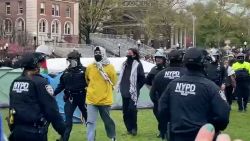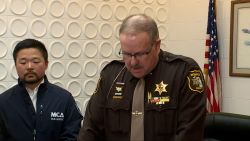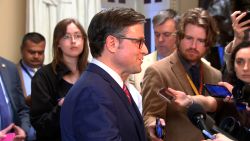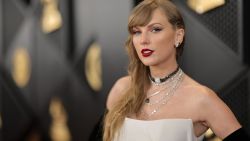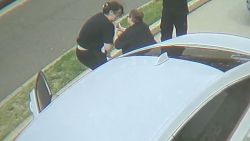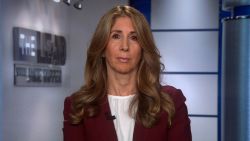Editor’s Note: Ruth Ben-Ghiat (@ruthbenghiat), a frequent contributor to CNN Opinion, is professor of history and Italian studies at New York University and the author of “Strongmen: Mussolini to the Present.” She publishes the newsletter Lucid on threats to democracy. The views expressed here are her own.
Read more opinion on CNN.
The return to campus for the start of fall teaching is normally a joyful time for college and university faculty and staff. It’s exciting to meet new students at New York University, see colleagues and get back into the classroom. However busy I am with research and administrative duties, I feel most alive when teaching and look forward to my classes – and I know so many of my peers who feel the same way.

But not this year. Far from feeling vibrant, many of us are haunted by the specter of illness. We worry that doing our job will cause us, our students and our loved ones to contract Covid-19, especially as the wildly contagious Delta variant continues to circulate.
At this precarious time, a massive number of people have returned or are returning to college campuses. A list by the Chronicle of Higher Education includes over 1,000 colleges and universities with vaccine mandates. According to data cited by the Washington Post about 700 of these schools have an estimated enrollment of about 6 million, while as of last Wednesday, the Post projected that more than 12 million students were set to attend colleges that do not require vaccines.
At Duke University, 304 undergraduate students, 45 graduate students and 15 employees tested positive in the first week of classes, according to the Raleigh News & Observer. Duke, which already required students without a documented medical or religious exemption to be vaccinated, has set new restrictions to mitigate the spread, including requiring masks indoors and outdoors, limiting student activities, suspending indoor group seating at campus dining facilities, and offering professors the option to teach their undergrad classes remotely for the next two weeks (not to curb spread, but to minimize disruption because of anticipated student absences). According to the Duke Chronicle, some parents are already expressing their displeasure at the new measures permitting remote learning.
Cornell University is continuing in-person instruction, despite seeing more positive cases than anticipated in its first days of classes and after saying a few weeks ago it would not approve requests for accommodations to teach remotely.
Letting faculty know officially that their employer is prepared to be flexible, allowing them to teach remotely if it becomes necessary, would alleviate a lot of stress. And remote teaching would make for far less disruption to the curriculum than canceling class.
Teaching is not just about imparting knowledge; each class is also a lesson in respectful and caring group behavior. Asking faculty to participate in practices that can jeopardize collective well-being is untenable in a moral as well as public health sense. That’s why some professors are letting their own moral compass guide their behavior. For example, University of Georgia mathematics professor Joseph Fu requires masks be worn in his classes, although the practice is not authorized by his institution or the University System of Georgia, which oversees the state’s public colleges and universities. According to a UGA spokesperson, “While the University highly recommends that everyone wear masks inside campus facilities, this is ultimately an individual decision, and USG rules do not authorize individual faculty or staff to require face coverings in classrooms or campus buildings.”
Unfortunately, no matter what our individual campus rules are, many of our students and their families are among the millions who have fallen under the sway of disinformation, refusing or rejecting vaccines and other basics of disease prevention. Yet faculty members who seek to protect themselves and the community by following public health best practices can find themselves facing students who seem not to care about endangering others (like the University of Georgia student who refused to put on a mask, prompting her elderly professor, who has health issues, to resign) even to the point of mocking them.
“I taught 135 students today,” tweeted Dr. Susan Meerdink, an assistant professor at the University of Iowa, on August 23. “The two rooms were packed, with no open seats. Only about 40 students had masks. When I described why I am wearing a mask and having virtual office hours (1-year-old at home, his grandpa doing chemo treatment), I got eye rolls and dramatic sighs.”
Or worse, faculty can be fired by their institutions. That’s what happened to Cody Luedtke, an instructor at Georgia State University, for refusing to teach without a mask mandate in place to keep her and her students safe. The school has a policy encouraging vaccinations and masks and confirmed to Inside Higher Ed that Luedtke was terminated for her “refusal to work.” Covid-19 cases are high and hospitals are under strain in Georgia; Luedtke wrote on a Go Fund Me page that “morally” she couldn’t “justify teaching face-to-face under those circumstances without a mask mandate.”
Certainly, the circumstances of the return to teaching vary hugely depending on whether one teaches at a public or private institution, or in a red or blue state. At the University of Iowa, there are no mask or vaccine requirements. The same is true of the University of Texas, where a devoutly anti-science governor, Greg Abbott, has stoked hostility around public health prevention efforts. More than 700 UT-Austin faculty, graduate students and administrators signed a petition last month asking for vaccination and mask mandates, to no effect.
The stakes of teaching in person in a pandemic without proper safety protocols and necessary accommodations being uniformly required have led faculty to make difficult decisions. Even in places where masks and/or vaccines are required, some faculty have resigned from their positions rather than teach in unsafe environments that may expose them and their family members to infection.
This means giving up health insurance as well as their salary, but many of those who do so say they feel they have no other choice. Leah Long, who has an unvaccinated toddler at home, resigned from Arkansas State University, which has no vaccine mandate and requires masks indoors only if six feet of distance cannot be maintained.
Undoubtedly, many academic institutions are doing their best to protect their communities as they grapple with protocols developed, in many cases, before the Delta variant took hold. As Wellesley College President Paula A. Johnson said to the Washington Post, “As time goes on, we are going to need to learn how to live with this virus. And I think we’re learning that right now.” Johnson is a doctor and expert in public health, and Wellesley requires masks and vaccinations for students on campus.
No matter the individual policies in place at a particular school, many faculty feel in a broader sense that they, their students and the staff who work alongside them are being treated like guinea pigs in an experiment predicated on a refusal by most universities and colleges to entertain a return to remote teaching, no matter what happens. Questions remain about what will happen when students fall ill and have to quarantine, since the recommendations given by many institutions, including my own, of recording lectures, don’t work well for seminars (meaning almost all graduate-level classes and many undergraduate ones too) that necessitate students’ participation in live discussions. And what if faculty fall sick, or their unvaccinated children become ill, or have to quarantine because they are exposed at their own schools?
With coronavirus showing no signs of abating, universities and colleges must show faculty that they value their well-being and are prioritizing their health. Otherwise, many may come to share the sentiment expressed by James Tierney, an assistant teaching professor at Penn State University at State College. Tierney resigned when the administration rejected his request to teach his 590-person introductory course online. This fall will be his last semester. “I believe the university’s vision for higher education no longer aligns with my own,” he wrote in his resignation letter.


